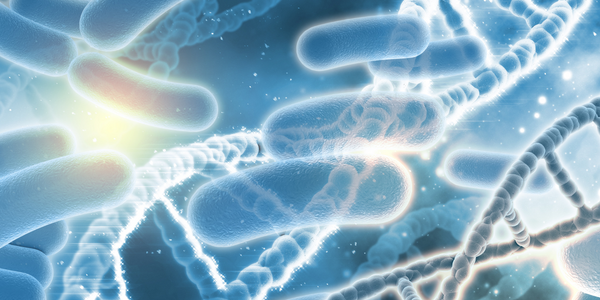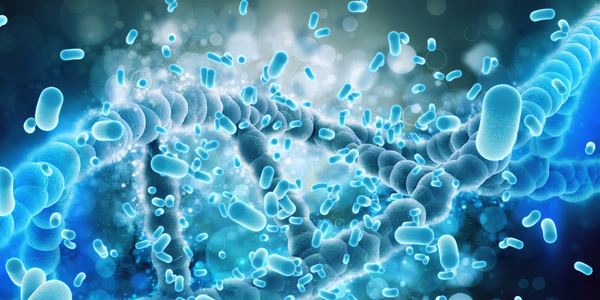5 Benefits of Including Inulin in Your Daily Diet
While you may not be familiar with Inulin ,but is used in almost everything that you might be consuming daily. Inulin is commonly used for weight management, bowel regularity, ease constipation, and manage diabetes. It's also used for controlling high serum lipids, such as cholesterol and triglycerides.
Curious to know more about what inulin is? Read along to know all about inulin and its benefits. You'll also find an amazing way to incorporate inulin into your diet. So read in full.
What is Inulin?
Inulin is a starchy substance found in a variety of fruits, vegetables, and herbs. It is a natural soluble fiber made of chains of fructose molecules called fructan. These molecules are linked in a way that it is not digested in the small intestine. It, therefore, travels to the lower gut or colon, ferments in your gut and works as a prebiotic, nourishing and promoting the growth of probiotic/beneficial gut bacteria.
Inulin has high water solubility and hence gels up and turns viscous when in contact with water. It acts as a store of energy and a shield against cold temperatures, like an anti-freeze for the plants. It's commonly found in several food items like: -
- Garlic
- Chicory Root
- Asparagus
- Artichoke
- Raw Onion Pulp
- Wheat
- Raw Barley
Inulin is used in various food sources, listed as follows :
- Cereal Bars
- Protein bars
- Milk products
- Desserts
- Fiber Supplements
Inulin is added to food items to: -
- Alter and better the food texture
- Provide health benefits
- Reduce the fat content in the food
- Add the prebiotic content to the food
What are the Health Benefits of Inulin?
1. Aids Digestion
Prebiotic fibers are known to act as food for the gut bacteria and nourish them to enhance digestion and overall gut health.
Inulin, as a prebiotic fiber, does the same. It helps promote the production of good bacteria in the gut. These bacteria, in turn, stimulate the immune system and prevent toxins, pathogens, or bad bacteria from entering the gut, thus improving gut health, digestion and immunity.
2. Supports Weight Loss
Inulin contains only 1.5 calories per gram and is known to suppress your appetitive in multiple ways:
- It alters brain activity and makes it feel fuller, suppressing the appetite.
- Increase the production of appetite-suppressing hormone peptide YY.
- It also increases the production of glucagon, a hormone that slows down stomach emptying.
When your appetite suppresses, your calorie intake reduces, which means natural weight loss.
Even several studies conclude that inulin does help in weight loss for overweight individuals by reducing their food intake and burning fat.
Please Note: You must know that inulin on its own isn't effective enough when it comes to weight loss. For inulin to be more effective, you'll need to adopt exercise, a proper diet, and a healthy lifestyle
3. Prevents Constipation
Inulin can swell up if it absorbs water creating a gel-like texture. The gel-like texture helps in softening the stool and improving bowel consistency.
Inulin, thus, helps in the frequency of bowel movements. It prevents constipation and is great for people that suffer from constipation. What's more, inulin slows down the digestion process so the body can absorb maximum nutrients.
4. Lowers the Blood Sugar
Inulin slows the digestion process, thus allowing the absorption and digestion of nutrients, especially carbohydrates. This slow digestion and absorption lead to the slow release of sugar in the bloodstream preventing unnecessary blood sugar spikes.
This makes inulin a beneficial prebiotic for people with prediabetes and types II diabetes as it reduces both the fasting blood sugar levels and HbA1c levels significantly. So include inulin in your diet regularly and help maintain optimum blood sugar levels.
5. Helps with Calcium and Magnesium Absorption
Along with nutrients, inulin also improves mineral absorption, specifically magnesium and calcium. Even studies suggest that inulin intake increases calcium and magnesium absorption and retention in the body. And magnesium, as you know, is good for nerve and muscle function, and calcium is essential for healthy bones.
Want to Include Inulin in your Diet?
While you can go for the mentioned food items to include inulin in your diet, it may be a challenge to get your daily share inulin each day from diet alone. And this is when natural inulin supplements like Daily Fiber come into the picture. What is Daily Fiber, and how can it help? Read along.
Why Daily Fiber?
Daily Fiber is a complete plant-based prebiotic fiber formulated with three years of immaculate research. It consists of the 17 organic superfoods including Inulin that will help with digestion and weight management, lowers cholesterol, support and nourishes your body's second brain, i.e., gut.
Daily Fiber is infused with delicious Pinacolada and vanilla berry flavors and is free from harmful antibiotics, artificial sugars, or preservatives. Each serving offers you 7gm of fiber, enough to provide you with all the health benefits of inulin. It is non-thickening, grit free and also free from harsh fibers like psyllium. Thus, a very safe for both adults and kids consumption.
Wrapping Up
To keep your body healthy and body function smoothly working, fiber is the one thing your body needs. Consuming prebiotic fiber like inulin is the best way to start your journey towards an overall health. And what is better than opting for Daily Fiber for your everyday fiber intake. So, order yours now.
References
1. Carlson JL, Erickson JM, Lloyd BB, Slavin JL. Health Effects and Sources of Prebiotic Dietary Fiber. Curr Dev Nutr. 2018 Jan 29;2(3):nzy005. doi: 10.1093/cdn/nzy005. PMID: 30019028; PMCID: PMC6041804. https://bit.ly/3b9SdOX.
2. Sobotka L, Brátova M, Slemrová M, Manák J, Vizd'a J, Zadák Z. Inulin as the soluble fiber in liquid enteral nutrition. Nutrition. 1997 Jan;13(1):21-5. doi: 10.1016/s0899-9007(97)90874-1. PMID: 9058443. https://pubmed.ncbi.nlm.nih.gov/9058443/
3. Puhlmann ML, de Vos WM. Back to the Roots: Revisiting the Use of the Fiber-Rich Cichorium intybusL. Taproots. Adv Nutr. 2020 Jul 1;11(4):878-889. doi: 10.1093/advances/nmaa025. Erratum in: Adv Nutr. 2021 Jul 30;12(4):1598. PMID: 32199025; PMCID: PMC7360457. https://www.ncbi.nlm.nih.gov/pmc/articles/PMC7360457/
4. Guess ND, Dornhorst A, Oliver N, Bell JD, Thomas EL, Frost GS. A randomized controlled trial: the effect of inulin on weight management and ectopic fat in subjects with prediabetes. Nutr Metab (Lond). 2015 Oct 24;12:36. doi: 10.1186/s12986-015-0033-2. PMID: 26500686; PMCID: PMC4619305. https://www.ncbi.nlm.nih.gov/pmc/articles/PMC4619305/
5. Liu X, Yang Q, He Z, Yao S. Efficacy and safety of inulin supplementation for functional constipation: a systematic review protocol. BMJ Open. 2021 Apr 8;11(4):e042597. doi: 10.1136/bmjopen-2020-042597. PMCID: PMC8039257. https://www.ncbi.nlm.nih.gov/pmc/articles/PMC8039257/
6. Bakirhan H, Karabudak E. Effects of inulin on calcium metabolism and bone health. Int J Vitam Nutr Res. 2021 Feb 22:1-12. doi: 10.1024/0300-9831/a000700. Epub ahead of print. PMID: 33611985. https://pubmed.ncbi.nlm.nih.gov/33611985/
7. Coudray C, Rambeau M, Feillet-Coudray C, Tressol JC, Demigne C, Gueux E, Mazur A, Rayssiguier Y. Dietary inulin intake and age can significantly affect intestinal absorption of calcium and magnesium in rats: a stable isotope approach. Nutr J. 2005 Oct 27;4:29. doi: 10.1186/1475-2891-4-29. PMID: 16253138; PMCID: PMC1283151. https://www.ncbi.nlm.nih.gov/pmc/articles/PMC1283151/


























Leave a comment